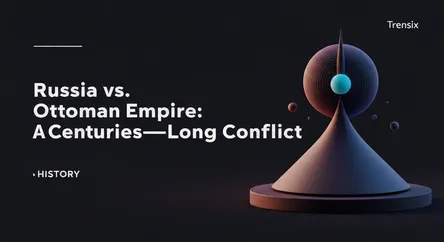History
Russia vs. Ottoman Empire: A Centuries-Long Conflict

A concise overview of the series of wars between the Russian and Ottoman Empires that reshaped Eastern Europe and the balance of power.
What is it?
The Russo-Turkish Wars were a series of twelve major conflicts between the Russian and Ottoman Empires that occurred intermittently from the 16th to the 20th centuries. These wars were driven by Russia's ambition to expand southward, gain access to a warm-water port on the Black Sea, and establish itself as the protector of Orthodox Christians living under Ottoman rule. The conflicts were fought across a vast territory, including the Balkans, the Crimea, and the Caucasus. Ultimately, this long-standing rivalry reflected the decline of the Ottoman Empire and the simultaneous rise of Russia as a major European power.
Why is it trending?
The history of the Russo-Turkish Wars remains relevant due to its lasting impact on the geopolitical map of Eastern Europe, the Caucasus, and the Middle East. The conflicts were central to the "Eastern Question," the diplomatic and political problems posed by the decay of the Ottoman Empire. This history often resurfaces in discussions about modern conflicts, national identities, and territorial disputes in the Black Sea region and the Balkans. The wars led to the independence of several Balkan nations, including Romania, Serbia, and Bulgaria, fundamentally altering the region's political landscape.
How does it affect people?
The Russo-Turkish Wars had profound and lasting effects on the populations of the regions involved. They led to significant territorial changes, with Russia gaining control over the Crimea, Bessarabia, and parts of the Caucasus. The wars stimulated nationalist movements among the Balkan peoples, eventually leading to the creation of independent nation-states. However, they also caused immense suffering, including large-scale massacres, displacement of populations, and significant demographic shifts, particularly affecting Muslim and Christian communities within the contested territories. The legacy of these conflicts continues to influence ethnic and political tensions in the region today.